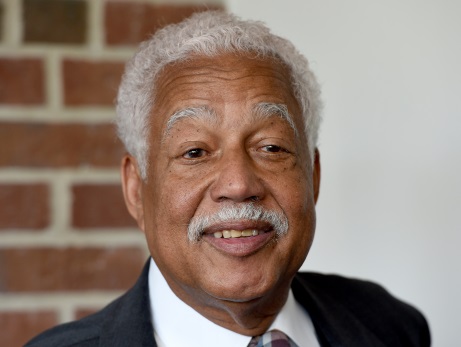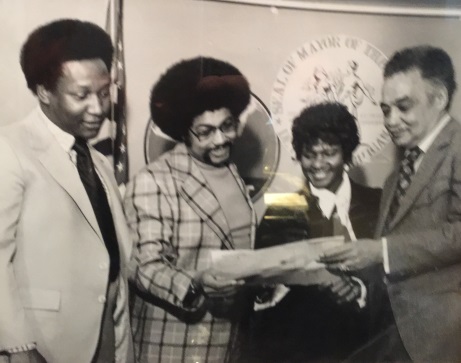Social Work Activists in Action: Stepping on a few toes "" the story of Paul Hubbard
 Housed in the heart of Detroit, the Wayne State University School of Social Work is committed to listening to and engaging with our community to advance social, economic and environmental justice. We take this responsibility seriously and recognize the role that such partnerships have in strengthening community capacity to address current and future challenges. In times of crisis, such as the current national call for racial equity and social justice, social workers spring into action and work with communities to empower sustainable change.
Housed in the heart of Detroit, the Wayne State University School of Social Work is committed to listening to and engaging with our community to advance social, economic and environmental justice. We take this responsibility seriously and recognize the role that such partnerships have in strengthening community capacity to address current and future challenges. In times of crisis, such as the current national call for racial equity and social justice, social workers spring into action and work with communities to empower sustainable change.
It is with this mission of both our School and profession in mind that we invite our Warrior Community to explore the rich history of social work activism through the stories of our trailblazing alum. The second in our Social Work Activists in Action series highlights macro community change agent and MSW alum Paul Hubbard.
What led you to Social Work?
I wanted to be what in the 60's was termed a school community agent. In order to become a school community agent you had to have both a degree in social work and education. At the time, Detroit schools hosted a school community agent whose job it was to organize community events and programs centered around the school. I was looking for an urban educational experience and Wayne State University was at the top of my list for graduate school. I began teaching business education and data processing courses at North Western High School during the day and Cass Tech on nights and weekends. My role as a senior class advisor provided me with the opportunity to engage students and provide them with unique learning experiences, including a senior trip to the Bahamas. My radical ideas got me into hot water a few times, but with the support of my supervisors, I was able to help students expand their horizons and take pride in being a Black Detroiter. Throughout my career as a founding member of Black Family Development, CEO of New Detroit, Managing Partner of Trivium Community Economic Development and currently as a member of the Toledo Social Unrest Task Force, I have worked hard to keep my focus on what is best for my community and it's members.

What was the cause/movement you focused on during your career?
Social Workers have to look at changing systems that are not working for people we serve. Although collecting food and clothes for those experiencing homelessness is vital community work, my focus has primarily been to advocate for change on macro level in political systems to support mental health services, housing and job training. This macro work provided me with the opportunity to not simply put a bandage on societal problems, but implement large-scale change that improved people's lives. System change comes with a hoard of challenges, but I learned there was nothing wrong with stepping on a few toes and taking risks, if it changed the system and improved the lives of the people we serve.
What tips do you have for activating change in communities when one is seen as an "outsider"?
If you work hard enough, common ground can be found in any disagreement. Work to find this common ground and use it as a springboard to bring opposing sides together and create resolutions. Always keep your goal in mind and be willing to compromise to improve the systems that serve your clients.
What advice do you have for students and social workers in the field who want to empower social change in their communities?
The best way to empower change is to hold elected officials accountable. We work hard to get people elected, but we then we don't work nearly as hard to hold them accountable once they are in office. We can have great leaders in positions of power, like Barack Obama, but that doesn't automatically mean that necessary improvements in employment, minority business support, education and historically black college support is occurring to the extent it needs to. I recommend social workers and students make their voices heard and get involved. This could be as simple as writing a letter to Governor Whitmer or local representatives and asking them to support (or not support) initiatives that effect your clients, sitting on an organizational board that improves your community (I serve on the School's Board of Visitors and numerous other community boards) or participate in a community meeting or protest. Whatever you choose, just be sure to follow-up with leaders and be the social work advocates I know you can be!